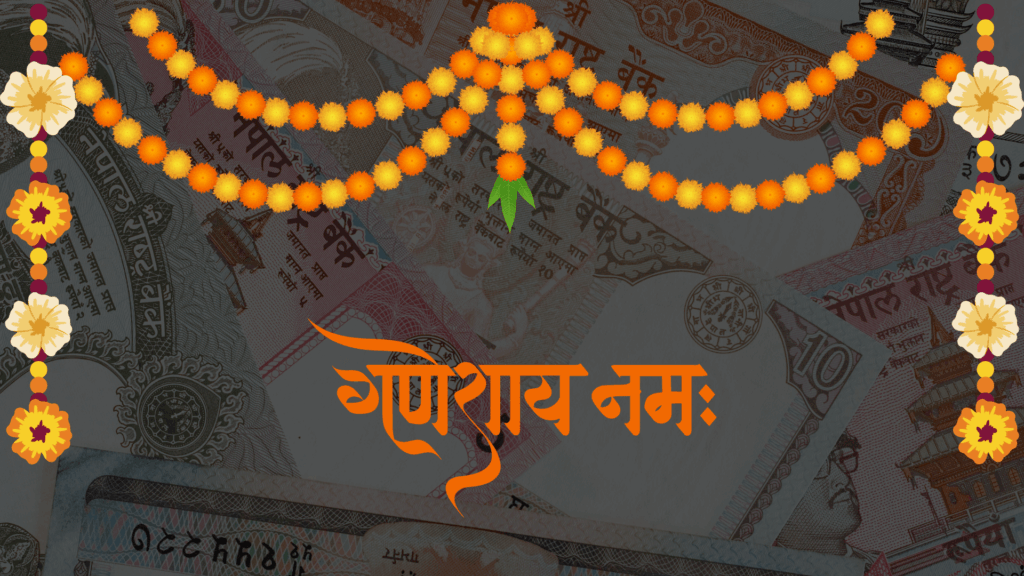Status or Savings? Decoding the Global Wedding Spending Frenzy and Nepal.

When Jeff Bezos, worth an estimated $244 billion, married Lauren Sánchez in a three-day Venetian extravaganza in June 2025, the world noticed—not just for the glamour but for the backlash. The wedding, costing $46–56 million, featured private water taxis, Michelin-star catering, and guests like Oprah Winfrey and Bill Gates. Yet, it was a mere 0.0193–0.0230% of Bezos’ net worth—a financial footnote for a man whose wealth could fund entire nations. Meanwhile, in India, Mukesh Ambani, with a $120 billion fortune, spent $600 million on his son Anant Ambani’s 2024 wedding to Radhika Merchant—0.5% of his net worth, 25 times more, proportionally, than Bezos’ spend. Both faced protests for their extravagance, reflecting global unease with billionaire excess. In Nepal, where families spend 200% of their net worth on weddings, such displays are celebrated, but at what cost? Overspending on weddings, driven by social pressure or a desire to impress, can cripple couples financially for years. Here’s why financial planning matters and how to celebrate meaningfully without breaking the bank.
The Bezos-Sánchez Spectacle and Venice’s Rebellion
Bezos’ Venetian wedding was opulence incarnate. Held on San Giorgio Maggiore, it boasted gilded décor, Murano glass gifts, and a rumored ceremony on his $500 million superyacht, Koru. The $50 million (average estimate) covered stays at Venice’s Aman and Gritti Palace, where suites hit $32,000 a night, and a reception at the historic Arsenale. Despite a €3 million donation to Venetian causes, including €1 million for lagoon research, locals revolted. Protesters from “No Space for Bezos” and Greenpeace Italy waved Amazon boxes labeled “REJECTED,” decrying Venice’s privatization. “If you can rent our city, pay more tax,” one read. For Venetians battling overtourism, the wedding was a billionaire’s affront.
Mukesh Ambani’s Extravagant Legacy
Mukesh Ambani’s son Anant’s 2024 wedding to Radhika Merchant redefined excess. Costing $600 million, the Mumbai event featured a mass wedding for underprivileged couples, performances by Justin Bieber and Rihanna, and a European cruise for 1,200 guests. Held at the Jio World Centre, it disrupted Mumbai’s traffic, sparking protests over road closures and inequality. At 0.5% of Mukesh’s $120 billion net worth, the spend was modest for him but equaled Nepal’s 2023 health budget. Critics argued it could have transformed lives; supporters noted it employed thousands and boosted local businesses.
Nepal’s Wedding Mania: A Cultural and Financial Burden
In Nepal, weddings are cultural juggernauts. With average household incomes around $1,200 annually, families often spend 200% or more of their net worth—$2,400–$10,000—on nuptials. A 2023 Nepal Central Bureau of Statistics study found urban Kathmandu households spend $5,000–$10,000, funded by selling land, pawning gold, or high-interest loans at 15–20% annual rates. A 2024 Nepal Wedding Industry Association survey revealed 60% of urban newlyweds took loans, with 25% defaulting within two years. The diaspora fuels this, with expats like Bishnu Khadka spending $50,000 on a 2024 Pokhara wedding, complete with drone shots, a Sabyasachi lehenga, and a Sydney DJ. “You show your success,” Khadka says. Such events, with Paris-meets-Pokhara décor and $1,000-per-minute fireworks, pressure locals to compete, often via three-year EMIs costing $150–$300 monthly—25–50% of average monthly incomes.
The Financial Fallout of Wedding Excess
Spending beyond one’s means on a wedding can haunt couples for years. Consider a Nepali couple earning $1,200 annually who borrows $5,000 at 15% interest for a wedding. A three-year loan requires monthly payments of $176, totaling $6,336 with interest—over five years’ income. If 50% of their income ($600/year) goes to living expenses, they’re left with $424 annually for other goals, like education or housing. A 2024 Kathmandu University study found that 40% of couples who financed weddings with loans delayed major life milestones—buying a home, starting a family, or pursuing higher education—by 3–5 years. In India, a 2023 WedMeGood survey reported that 35% of urban couples spent 20–50% of their savings on weddings, with 15% taking 5–7 years to recover financially.
Globally, the trend persists. A 2023 U.S. study by The Knot found the average wedding cost $35,000, often 50–70% of a couple’s annual income. Couples frequently dip into savings or take loans, with 20% reporting credit card debt post-wedding, averaging $2,500. The pressure to impress relatives or match social media-worthy events—like Ambani’s extravaganza or diaspora-driven spectacles—drives this cycle. Copying others without considering income, net worth, or financial goals risks long-term stability.
Why Financial Planning Matters
Your wedding shouldn’t define your financial future. Here’s why income and net worth matter:
- Income Limits Cash Flow: If your household earns $1,200 annually (Nepal’s average), spending $5,000 on a wedding requires 4+ years of total income, ignoring living costs. Even in the U.S., where median household income is $74,000 (2023 Census Bureau), a $35,000 wedding eats 47% of yearly earnings.
- Net Worth Reflects Resilience: A family with $10,000 in assets (land, gold, savings) spending $5,000 loses 50% of their safety net. For Bezos or Ambani, percentages are trivial, but for most, such spending erodes wealth-building potential.
- Debt Compounds Stress: High-interest loans (15–20% in Nepal, 10–15% globally for personal loans) mean every dollar borrowed costs more over time. A $5,000 loan at 15% over three years adds $1,336 in interest, diverting funds from future goals.
Practical Tips for a Financially Savvy Wedding
Instead of pouring savings into a one-day event, plan a wedding that celebrates love and secures your future. Here are practical tips:
- Set a Budget Based on Income and Savings:
- Limit wedding costs to 10–20% of your annual income or 5–10% of net worth. For a $1,200-income Nepali household with $5,000 in assets, cap spending at $120–$240 or $250–$500, respectively.
- Example: A $500 budget could cover a modest venue ($100), catering for 50 guests ($200), basic attire ($100), and decorations ($100).
- Prioritize Must-Haves:
- List essentials (e.g., food, attire, venue) and skip extras like fireworks or imported DJs. In Nepal, focus on cultural rituals over flashy add-ons.
- Example: Opt for local caterers ($3–5/person) over imported menus ($20/person). For 100 guests, that’s $300 vs. $2,000.
- Avoid Loans or Use Low-Interest Options:
- Save for 6–12 months instead of borrowing. If loans are unavoidable, seek credit unions or cooperatives with rates below 10%, not 15–20% moneylender rates.
- Example: Saving $50/month for a year yields $600, covering a small wedding without debt.
- Repurpose and Reuse:
- Use family heirlooms (gold, attire) or rent outfits instead of buying designer pieces. In Nepal, renting a lehenga costs $50 vs. $1,000 for a custom Sabyasachi.
- Repurpose decorations for home use or sell them post-event.
- Invest in Your Future:
- Redirect 50% of your planned wedding budget to savings, education, or a home down payment. In Nepal, $2,500 could fund a year of college for two or a small plot of land.
- Example: Instead of $5,000 on a wedding, spend $2,500 and invest $2,500 in a fixed deposit at 7% interest, yielding $3,446 in 5 years.
- Resist Social Pressure:
- Host intimate gatherings (50–100 guests) instead of 500-person spectacles. In Nepal, cutting guest lists saves $3–5/person on catering.
- Communicate with family: “We’re focusing on our future, not a one-day show.” Cultural pride lies in love, not excess.
The Moral
Bezos spent 0.02% of his wealth and faced protests. Mukesh Ambani spent 0.5% and sparked outrage. In Nepal, families spend beyond their means and earn praise—but risk decades of debt. Weddings are cultural treasures, but copying billionaires or diaspora extravagance without considering your finances is a recipe for regret. Spend wisely, celebrate meaningfully, and save for the life you’ll build together.
